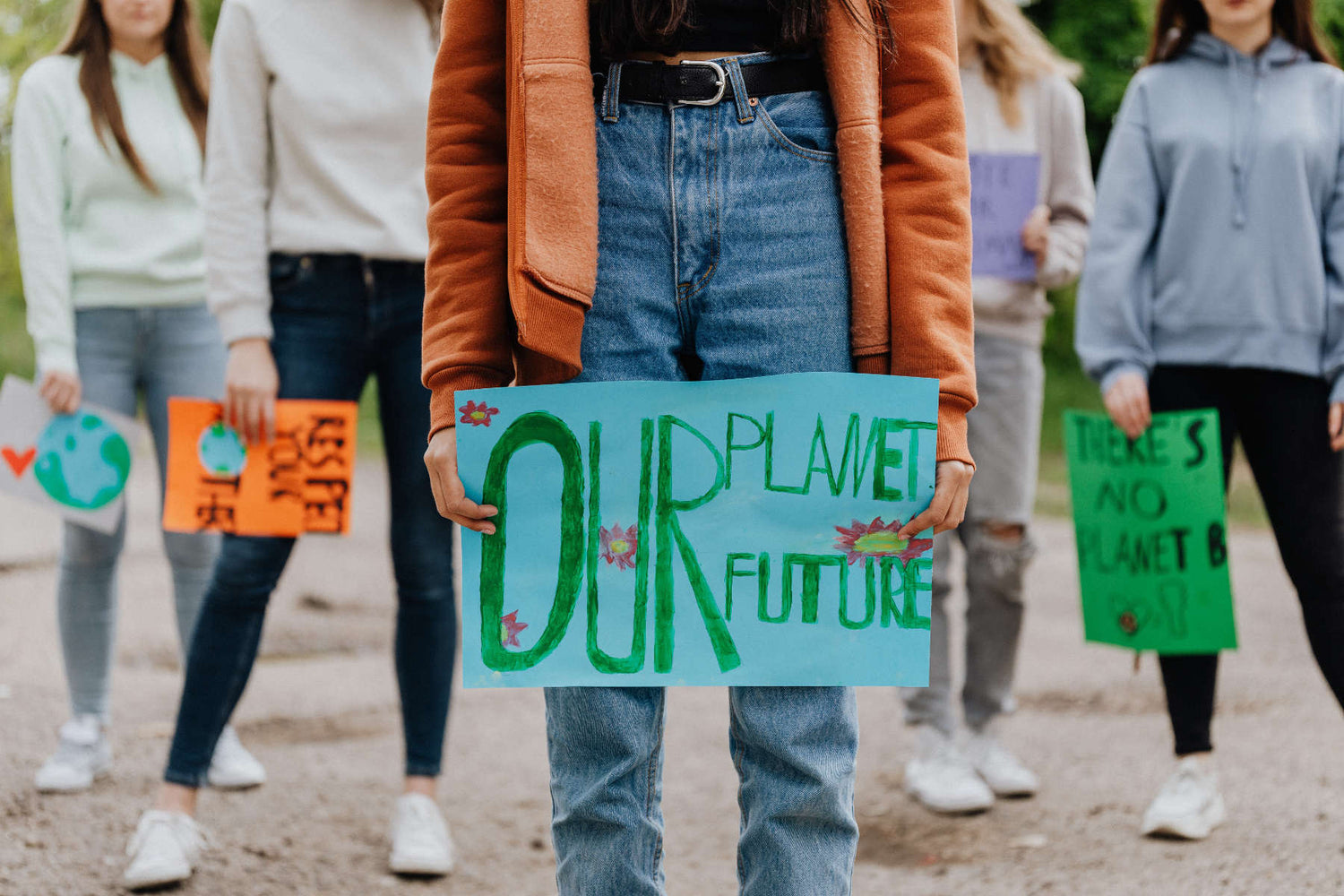by Sarah Grace Ward
Sarah Grace is a student at Unity College working towards her Masters in Public Science in Wildlife Conservation and Management. She has a particular interest in how ethics and political systems connect to and shape the environmental movement. Each week in February, Sarah Grace will spotlight a different topic in pursuit of her capstone project. Please fill out survey questions to help her research and development.
As a thank you for participating, Happy Earth will be providing 25pts for each week's survey submission!
The environmental state has begun to continuously emerge in discussions of how much individuals or communities should do to protect the environment. There are debates surrounding if the state of the environment is truly as bad as scientists say it is, or if humankind is genuinely doomed. Climate change has become one of the leading factors in humans’ reasoning with the ‘end-times’, while simultaneously becoming a buzz word for different media outlets. However, when faced with how much we should care about the environment, whether that is for an individual or community, it is ultimately traced back to why should we care in the first place.
Environmental ethics studies the relationship of human beings to the environment and its living, but non-human counterparts. It focuses on dissecting the moral obligation we have as humans to prioritize the environment, or whether we even have a moral obligation in the first place. Environmental ethics became a philosophical discipline in the 1970’s after anthropogenic activities were driving more negative environmental impacts. Ecologists decided to evaluate the ramifications of technology, industry, economic expansion, and population growth on biodiversity loss, deforestation, ecosystem degradation, and climate change. Environmental ethics has blossomed into a discipline that encompasses philosophy, sociology, economics, environmental science, while integrating progressive ideologies including deep ecology and ecofeminism.
Some ecologists and philosophers argue that we have a responsibility to future generations, and we should be cognizant of what our actions do to our ecosystems for their sake and preservation. However, other philosophers argue that because future generations are a group of people with no definitive outline, there is no moral obligation to them. How do humans living now prioritize future generations when we see the effects of climate change and environmental degradation affect marginalized communities today? Similarly, while these discourses may be beneficial to humanizing environmentalism, the stake the environment has regarding human responsibility or recklessness becomes misplaced.
There are a plethora of ethics theories that are applied to this specific discipline, and all of them have different answers to these questions. However, the entire discipline of environmental ethics is shifting to agree that a moral obligation to the environment and other individuals cannot be denied. Many sectors within the environmental ethics discipline have become more informed by changes in legislation regarding environmental issues. We need guidelines to what is acceptable, especially as businesses and governments begin to get involved with the exploitation of resources and communities. Therefore, our moral obligations need to be regulated on the grounds of global distributive justice—emphasizing that regardless of where an individual is or what their capital is, they do not deserve to be a victim to climate change stemming from other people’s lack of morality. This is the basis of modern environmental ethics: arguing to what degree our moral obligation lies to transitioning to embrace scientific development and radicalizing global environmental justice.
Please consider filling out this survey related to the article.
References:
Brennan, A., & Lo, N. Y. S. (2021, December 3). Environmental ethics. Stanford Encyclopedia of Philosophy. Retrieved February 9, 2023, from https://plato.stanford.edu/entries/ethics-environmental/
Cochrane, A. (2023). Environmental Ethics. Internet encyclopedia of philosophy. Retrieved February 9, 2023, from https://iep.utm.edu/envi-eth/#H3
Grim, J., & Tucker, M. E. (2014). Ecology, Conservation, and Ethics. In Ecology and religion (pp. 62–84). essay, Island Press.
Resources:
Journal of Agricultural and Environmental Ethics. Volume 36, Issue 1. March 2023. https://link.springer.com/journal/10806/volumes-and-issues/36-1


